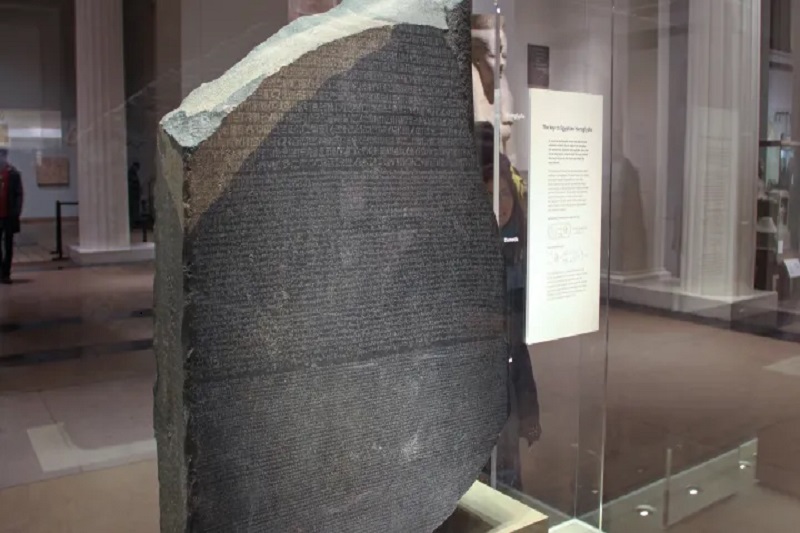Last updated on December 2nd, 2022 at 09:33 am
The Rosetta Stone, a valuable slab of black granite with a multi-translated inscription, was the key piece of evidence that led to the discovery that ancient Egyptian hieroglyphics could be deciphered. A growing number of people, more than two centuries after armies of the British Empire carried it to Great Britain from Egypt, are demanding that it be returned. Monica Hana is the person responsible for organizing one of the two petitions calling for the return of the stone.
The head of the Arab Academy for Science, Technology, and Maritime Transport has stated that he believes all nations have the right to seek back their heritage. “I think all nations have the right to ask back for their past,” “In addition, during the 19th century, slavery and child labor were both allowed, and neither women nor children had any legal protections.” “We are now in the 21st century, and as a result, we are obligated to repair the errors of the past as well as the errors of history because we are unable to modify either one.”
The British Museum denies that the stone was taken illegally and points to a treaty that was signed in 1801 that includes the signature of an Egyptian representative who fought alongside the British against the French for control of the North African territory. The British Museum argues that this signature proves that the stone was lawfully taken.
When Napoleon invaded Egypt, the Sultan of the Ottoman Empire, who was based in Istanbul, was technically the ruler of Egypt. Near the town of Rosetta, which is approximately 35 miles east of Alexandria, a French soldier had discovered the black slab. “I see the Rosetta Stone as a representation of the imperial influence of the West on my civilization.” “It is both a symbol of cultural genocide and a piece of war booty,” Monica Hana clarified.
“I’m not only asking for its restitutional repatriation, but I’m also training generations of students who will become researchers to continue the battle until the Rosetta Stone is back in Egypt,” she said. “It’s a restitutional repatriation.” For a long time, Western museums have used the fact that their facilities are better equipped and that they attract larger crowds as justification for their possession of world treasures.
Related Posts
While some museums are transferring ownership of certain artifacts back to their original owners, the vast majority of these items are still being kept in museum collections. As an example, the Prussian Cultural Heritage Foundation made a deal with Nigeria to keep one-third of the artifacts that were on loan.
“My advice to the British Museum is that you need to discover a new function for your institution in the 21st century as soon as possible. The British Museum is still kept behind glass as if it were a cabinet of curiosities from the 19th century. They need to come up with a new vision and a new philosophy for their position as a museum, and restitution and repatriation should be at the core of this new philosophy.”
According to the museum, the Egyptian government has not made a formal request for the return of the Rosetta Stone, which was engraved around the second century B.C. The British Museum is home to more than 100,000 artifacts from Egypt and Sudan, including this granite slab.

